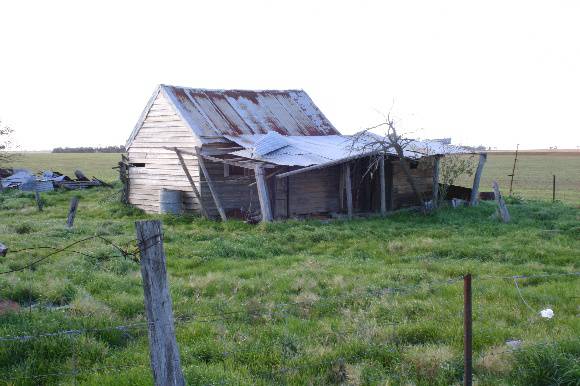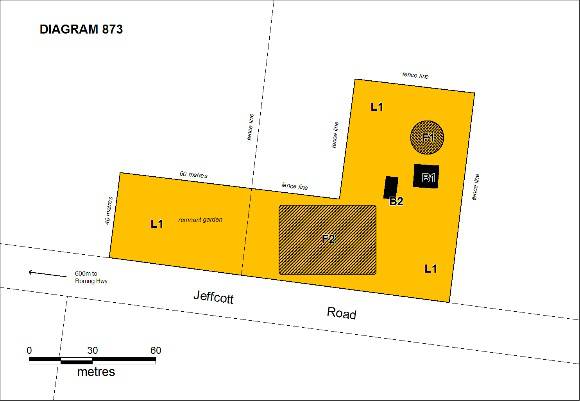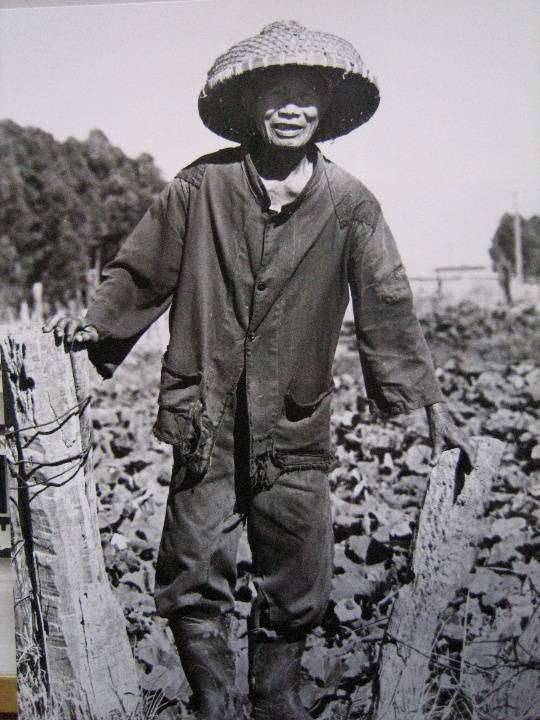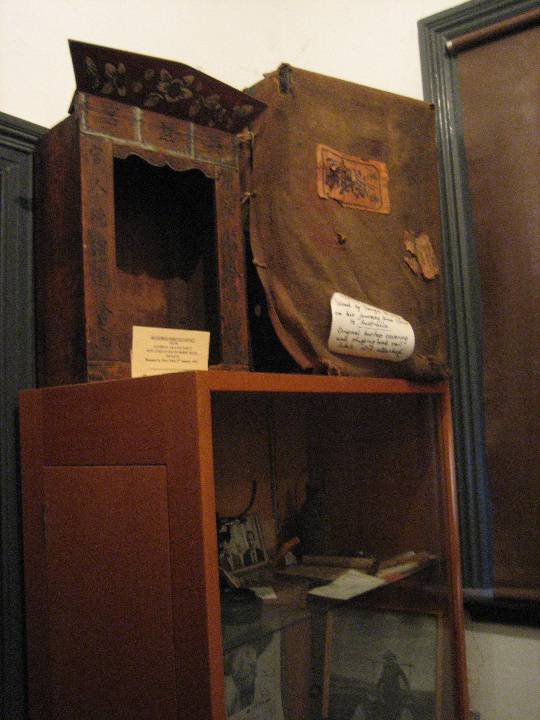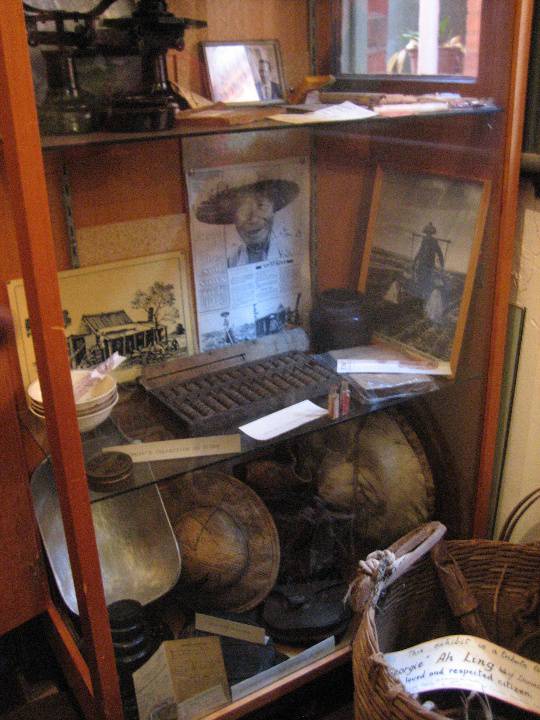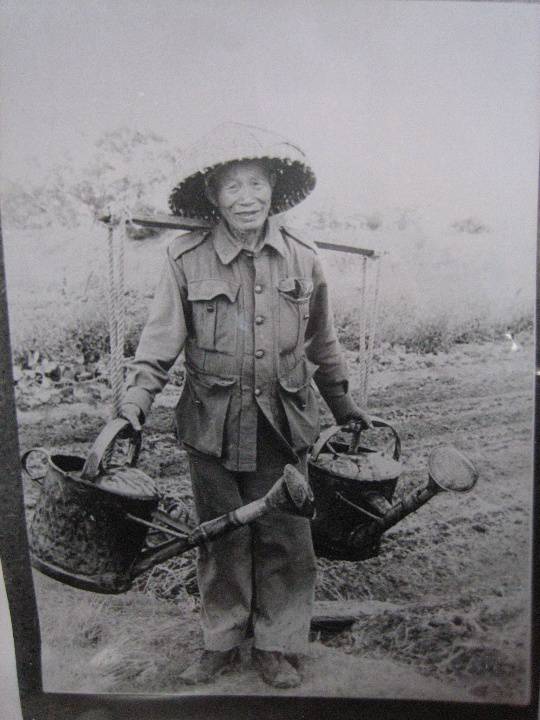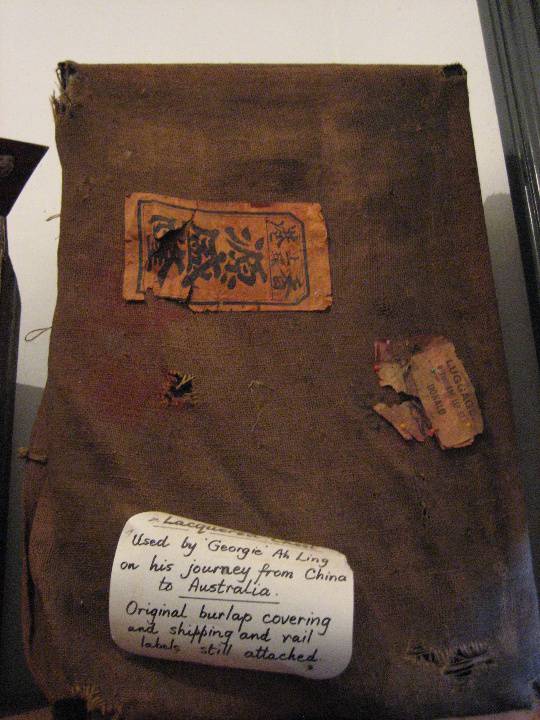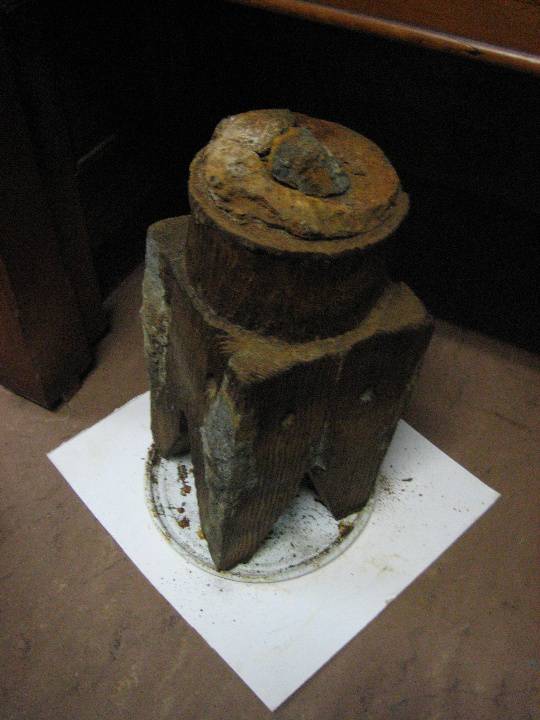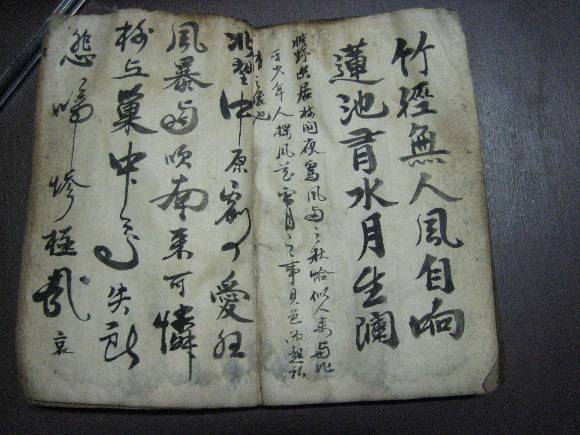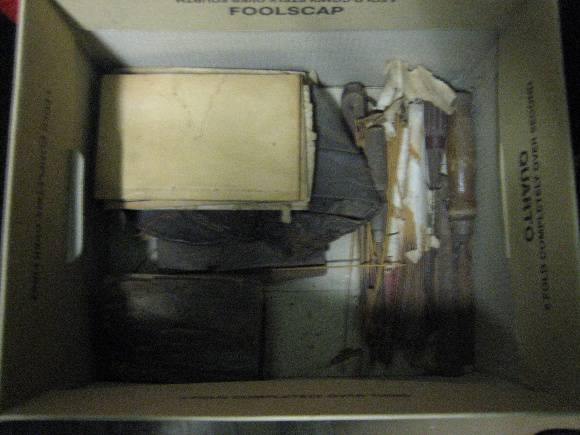| Back to search results » | Back to search page » |
|
GEORGIE'S HUT (CHINESE MARKET GARDEN)
Statement of Significance
What is Significant?
A Chinese market garden was established on Jeffcott Road in Donald
during the late 1920s on a 10 acre plot of land leased by Low Boa Ling
from a local farmer. The market garden operated continually until the
1980s. During the last half of the nineteenth century, Chinese-run
market gardens operated in Donald along the banks of the Richardson
River at the northern end of the township. By the time Low Boa Ling
established the garden in the 1920s there were no other gardens in the area.
Low Boa Ling (also referred to as Harry Ah Ling), a traditional
Chinese medical practitioner, arrived in Australia early in 1900 to
work as a gardener beside his father, Liu Xi Pan, in Boort. Liu Xi
Pan, had arrived during the late 1890s to assist his father, Lui Wei
Ngui, in market garden operations around Ararat, before moving to
Ballarat and then to Boort. In 1936 George Ah Ling (1884-1987),
affectionately known as Georgie, but also legally registered as Lau
San or Ah Foo Ah Wah, took over the operation on Jeffcott Road from
his cousin, Low Boa Ling.
Georgie Ah Ling grew vegetables including leafy greens, pumpkins,
brown onions and tomatoes, and bought fruit from the markets in
Melbourne and Ballarat to resell locally. Georgie watered the gardens
with two large watering cans suspended from a yoke around his
shoulders. The cans were filled from an irrigation or holding channel.
Water was pumped from a dam, constructed during the late 1920s, to the
holding channel located in front of the house site.
Produce from the gardens was delivered in crates transported by a
horse-drawn wagon. Many packing crates remain on site, along with
other items including furniture, domestic and garden tools, and
clothing. Several items were removed after Georgie's death and are now
located at the Donald and District Archives, Donald Agricultural
Museum and the Police Court Museum in Donald, under the care of the
History and Natural History Group of the Donald Music Literature and
Art Society Inc.
Georgie's Hut is a simple three-roomed, timber-framed,
weatherboard clad hut with corrugated iron roofing and was built
c.1927-28. The western room's hessian-lined ceiling has deteriorated
to expose the timber trusses, which can also be seen in the central
and eastern rooms. The walls of the western room are lined in sections
with torn Chinese and Victorian newspapers. The floors of the central
and western rooms are covered by deteriorated floorboards and the
kitchen, to the east, has a packed earth floor. A fireplace with brick
foundations and a chimney constructed of used kerosene cans which
abutted the kitchen at the eastern end of the house was removed
following Georgie's death.
Out-buildings include crudely constructed timber framed,
corrugated iron and timber clad open-fronted packing and storage
sheds. Bamboo lines the exterior of the sheds at the rear and was used
in the garden to provide stakes for vegetables. A rubbish dump with
remains of a cart, corrugated iron sheeting, kerosene cans, Chinese
ceramics and other items is located at the rear of the hut and other
artefacts are scattered throughout the site.
Why is it Significant?
Georgie's Hut (Chinese Market Garden) is of archaeological,
historical and social significance to the State of Victoria.
How is it Significant?
Georgie's Hut (Chinese Market Garden) is of historical
significance as an example of the Chinese market garden industry which
was once widespread throughout Victoria.
The site is unique with
surviving intact fabric; most historic Chinese market garden sites in
Victoria have been destroyed through development or remain only as
archaeological sites.
The collection of objects that remain at
Georgie's Hut (Chinese Market Garden) and items associated with the
site held at Donald and District Archives, Donald Agricultural Museum
and the Police Court Museum are of historical significance and provide
information about the market garden operations and domestic life on
the site.
Georgie's hut and garden is historically and socially
important for its link to members of the Chinese community in
Victoria, dating from the gold rush period. It is an example of the
presence of the Chinese in communities throughout Victoria and marks
the end of a period when Chinese market gardens were essential to
urban and district food supply.
The site is of archaeologically
significant for its potential to produce artefacts and information
relating to the occupation of the site and agricultural operations.
Group
Farming and Grazing
Category
Artefacts/Relics


